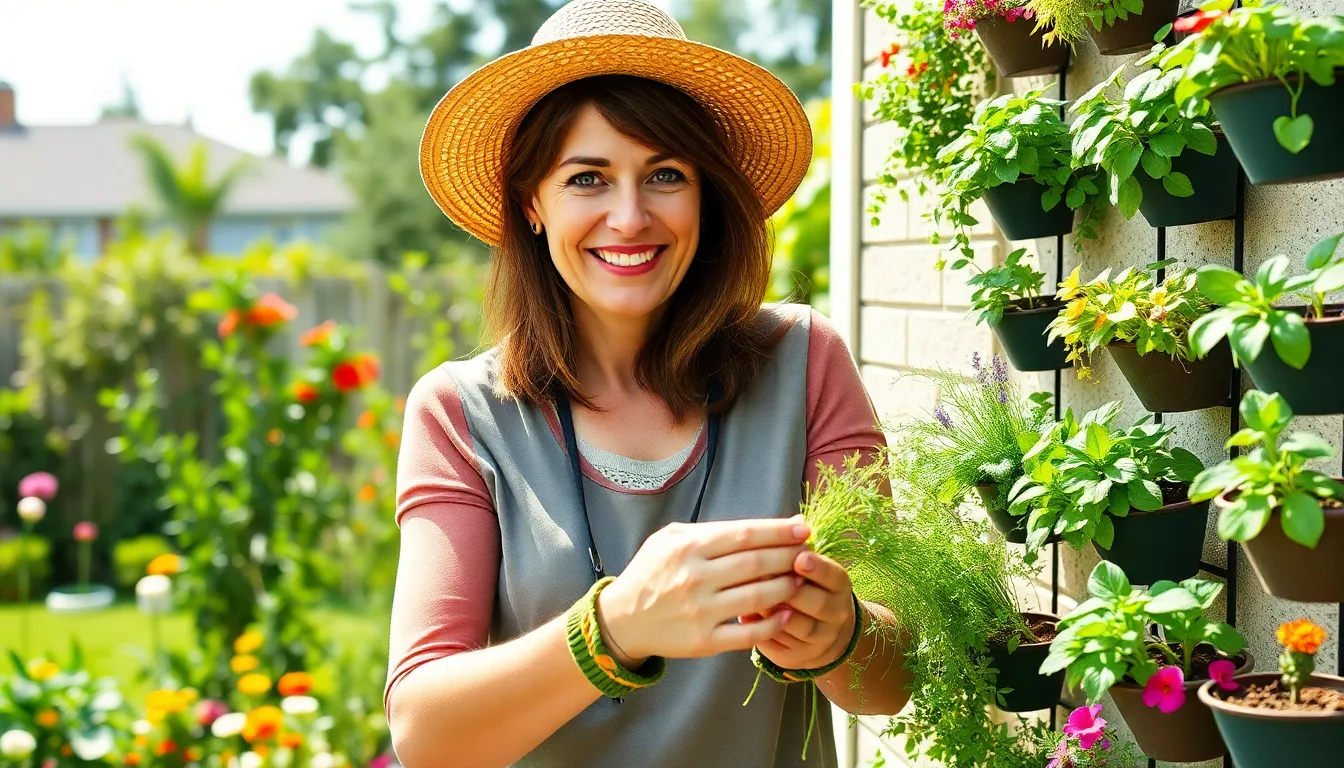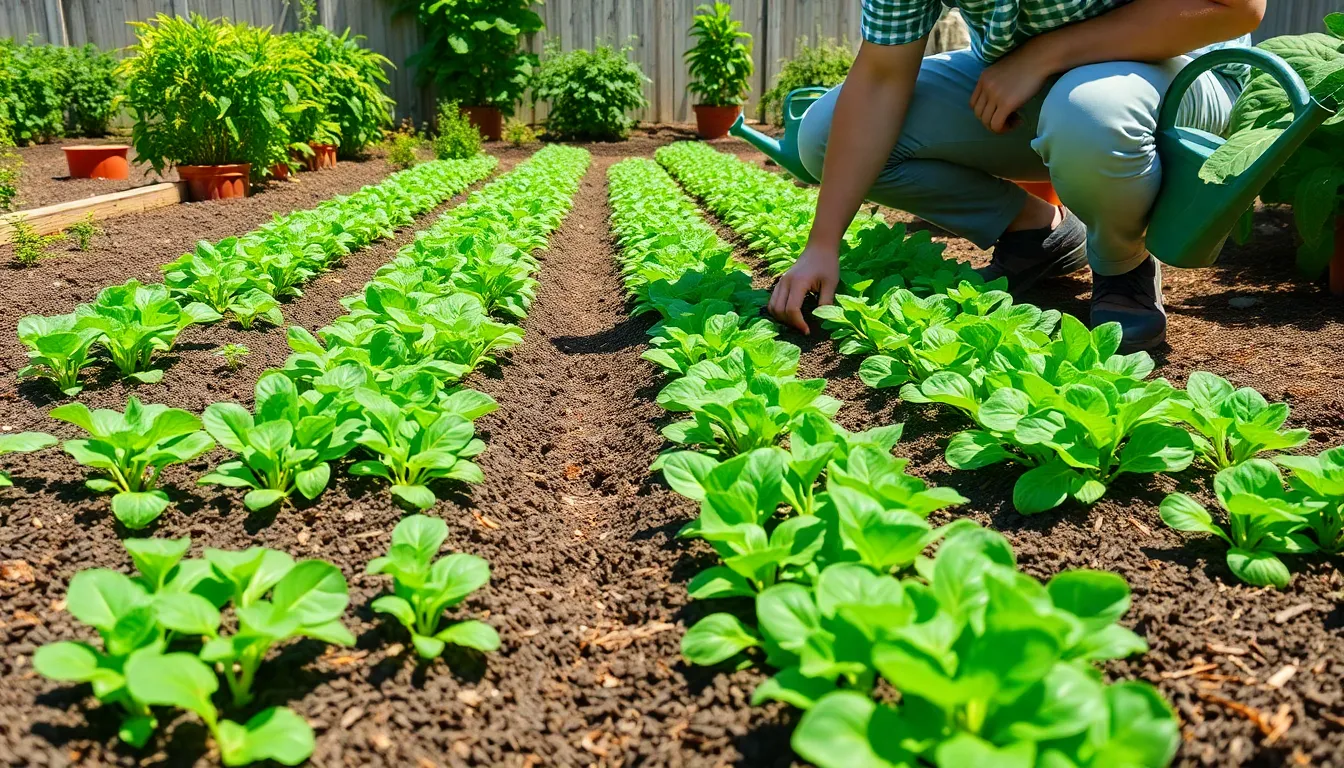Physical Address
304 North Cardinal St.
Dorchester Center, MA 02124
Physical Address
304 North Cardinal St.
Dorchester Center, MA 02124

Imagine stepping into your backyard and being greeted by a vibrant patch of fresh vegetables, ready to be plucked for dinner. Vegetable gardening isn’t just a way to grow food; it’s a delightful adventure that transforms any outdoor space into a green paradise. Whether you’re a seasoned gardener or just starting out, there’s always room for creativity and fun in the garden.
Exploring unique approaches to vegetable gardening encourages creativity and maximizes space. These techniques cater to various environments, allowing anyone to cultivate their own greenery.
Using vertical gardening techniques allows gardeners to optimize limited space effectively. Wall planters, trellises, and vertical garden systems elevate plants, creating an eye-catching display. Many plants thrive in this arrangement, including tomatoes, cucumbers, and herbs. Incorporating vertical designs also encourages better air circulation and sunlight exposure. Gardeners can design these setups using pallets, hanging pots, or vertical grids to enhance aesthetic appeal.
Container gardening proves invaluable for gardeners with limited space. Various sizes and styles of containers accommodate a wide range of vegetables, including peppers, lettuce, and radishes. This method allows for mobility, permitting gardeners to move containers to capture sunlight or protect plants from adverse weather. Utilizing high-quality potting soil and ensuring proper drainage promotes healthy growth. Creative arrangements with colorful pots create a vibrant garden atmosphere even in small environments.

Seasonal vegetable gardening ensures that plants receive optimal conditions throughout the year. Adopting seasonal strategies enhances crop yield and offers diverse produce.
Starting seeds indoors accelerates growth for early vegetables. Consider planting cool-season crops like peas, spinach, and lettuce as soon as the soil thaws. Early preparation of garden beds promotes healthy soil, incorporating compost to enrich nutrients. Ensure proper spacing to allow airflow, preventing disease. Monitoring temperature changes aids in deciding the appropriate planting time. Selecting disease-resistant varieties enhances success rates. Their resilient nature leads to robust harvests.
Watering consistently maintains soil moisture during hot months. Apply mulch around plants to retain moisture and suppress weeds. Pruning excess growth encourages airflow and prevents pest infestations. Regularly check for pests, using organic solutions when needed. Fertilizing with balanced nutrients supports vigorous growth for high-yield crops. Harvesting frequently promotes continued production throughout the season. Choosing fast-growing plants helps maximize summer output.
Sustainable gardening practices enhance vegetable gardens by promoting ecological balance. These techniques yield healthier plants while reducing environmental impact.
Composting enriches soil by using kitchen scraps, yard waste, and other organic materials. Heaps or bins can transform these items into nutrient-dense compost. This process enhances soil structure, encouraging better aeration and moisture retention. As compost breaks down, beneficial microorganisms thrive, supporting plant health. Regularly adding compost boosts fertility, promoting vigorous growth in vegetables like tomatoes, peppers, and carrots. Moreover, it reduces the need for chemical fertilizers, thus protecting local ecosystems.
Companion planting pairs compatible plants to enhance growth and deter pests. Strong-smelling herbs, such as basil and mint, can repel harmful insects when grown alongside tomatoes and peppers. Additionally, planting marigolds in vegetable gardens attracts beneficial insects that prey on pests. Certain root vegetables, like carrots and onions, benefit from their close proximity by improving flavor and size. This method fosters biodiversity, creating a balanced garden environment. Implementing companion planting practices boosts overall garden health and reduces reliance on pesticides.
Innovative tools enhance the vegetable gardening experience by improving efficiency and reducing labor. Smart irrigation systems control watering based on soil moisture levels, ensuring plants receive adequate hydration while conserving water. These systems can connect to smartphones, allowing for remote monitoring and adjustments.
Raised garden beds often benefit from vertical planters that optimize space and accessibility. Constructed with durable materials, these planters hold multiple plants while minimizing ground contact. Utilizing such planters encourages higher yields in smaller areas.
Soil moisture sensors significantly assist in determining when watering is needed. These devices provide real-time data, helping gardeners prevent overwatering or underwatering, which supports healthier plants. Gardeners can simply insert these sensors into the soil for instant readings.
Garden trowels and ergonomic hand tools also contribute to ease of use. Designed with comfortable grips, these tools reduce wrist strain during extended use. Their lightweight and sturdy construction aids in efficiently cultivating soil and planting seeds.
Plant markers are essential for keeping track of vegetable varieties. Using weather-resistant materials, these markers withstand outdoor conditions and clearly display plant names. They improve organization, especially in diverse gardens.
Compost bins, which assist in recycling organic waste, enrich soil health. Bins designed with aeration holes promote decomposition, resulting in high-quality compost for plants. Implementing this practice enriches the soil and reduces waste.
Finally, portable garden carts simplify the transportation of soil, plants, and tools. Equipped with sturdy wheels, these carts handle various terrains while providing convenient storage. They enhance mobility, making gardening tasks more manageable.
Exploring vegetable gardening opens up a world of creativity and sustainability. By embracing innovative techniques like vertical gardening and container gardening, anyone can transform their space into a vibrant oasis. Seasonal strategies and sustainable practices not only enhance growth but also promote ecological balance.
Incorporating the right tools and gadgets makes the gardening experience even more enjoyable. With a little effort and imagination, anyone can cultivate a thriving vegetable garden that provides fresh produce and enriches their outdoor environment. The journey of gardening is as rewarding as the harvest itself.